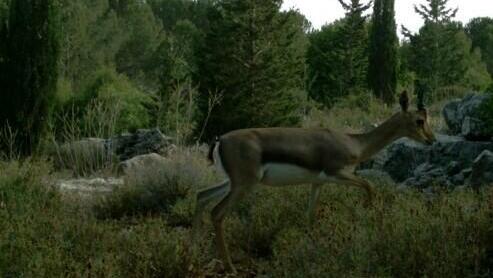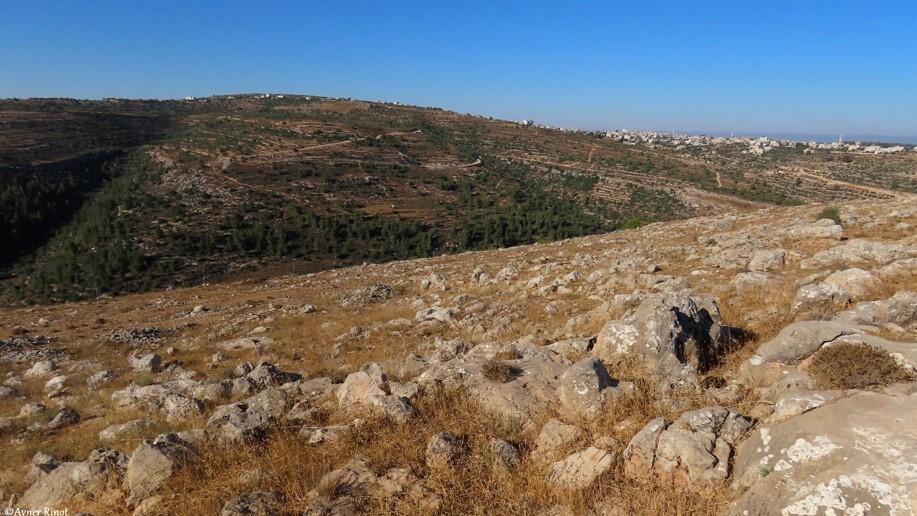The West Bank region stretches out some 6,000 square kilometers and is home to many natural treasures – rare flora and fauna, ancient artifacts, diverse habitats, rivers and streams, valleys, and more. But sprawling urbanization puts this natural wealth at peril.
Matan Nachum, Nature Conservation Coordinator with the Society for the Protection of Nature in Jerusalem and the West Bank, will take part in the Fourth Nature Conservation Conference in the West Bank, dubbed "A Crisis in the Pinnacle of Geopolitics."
3 View gallery


Old world swallowtail
(Courtesy of the Society for the Protection of Nature in Israel)
In honor of the conference, which will be held Thursday at Shalem Academic Center in Jerusalem, Nachum has compiled a shortlist of construction projects that could threaten the West Bank's nature.
Sha'ar Shomron Industrial Zone - Industrial areas are significant polluters, and Israel has an excess of them. The new site is planned over a narrow and sensitive ecological corridor and might block it completely. More so, building in this corridor would divide the habitat of two land turtle populations.
English Forest Industrial Zone — Beitar Illit is planned to be built in the heart of an area that is home to deer and hyenas that roam the land and live in healthy ecological conditions. In addition, there is a river and many springs close by, which would also be harmed by the project.
3 View gallery


English Forest Industrial Zone, Beitar Illit
(Courtesy of the Society for the Protection of Nature in Israel)
Building new roads, such as Route 3742, would disrupt the ecological contiguity between Etziona River and Sansan Reserve. "Almost nowhere in Israel is there a need for new roads, when the existing ones can be expanded, or better, public transportation ones can be put in place," the Society for the Protection of Nature in Israel said.
Expanding the Har Gilo settlement — This new neighborhood has not bothered to run a single environmental test, and when the Society for the Protection of Nature conducted an ecological survey in the area, they discovered evidence of the presence of land turtles and hyenas - endangered species globally.
The Land of Quarries - The quarry plan in the West Bank tried to regulate pirated quarries but ended up easing on quarry building instead. According to Nachum, quarries cause almost irreversible damage to the environment.


